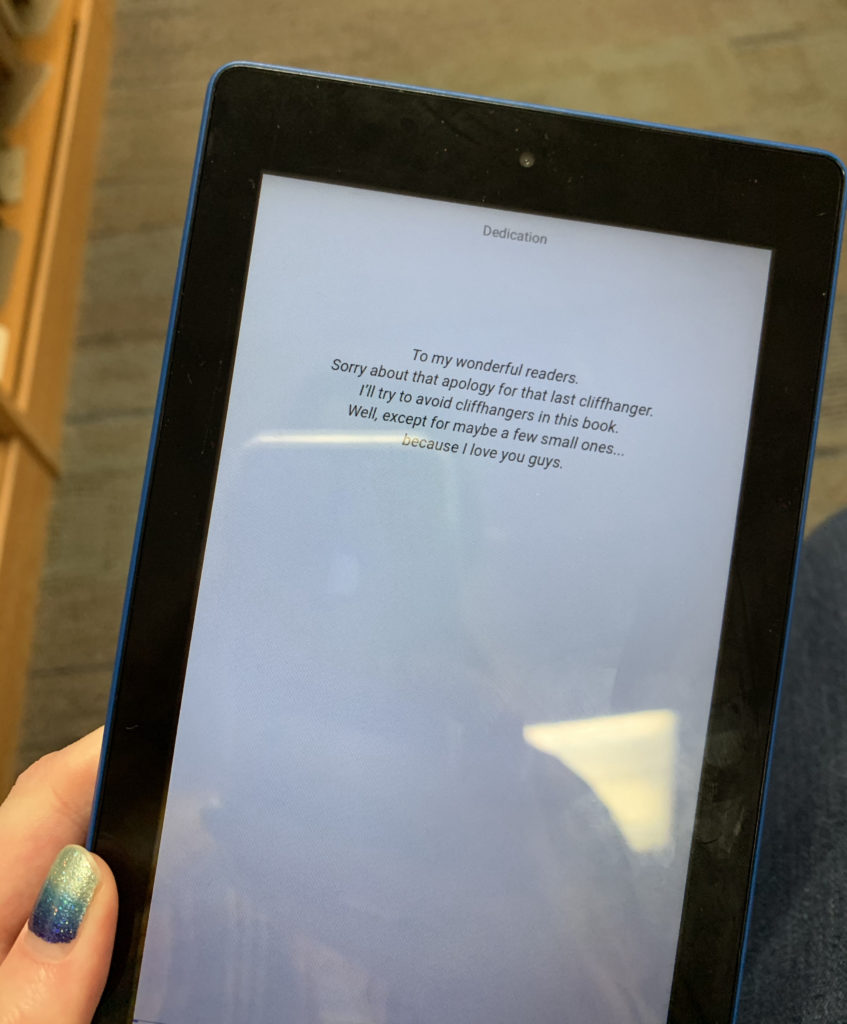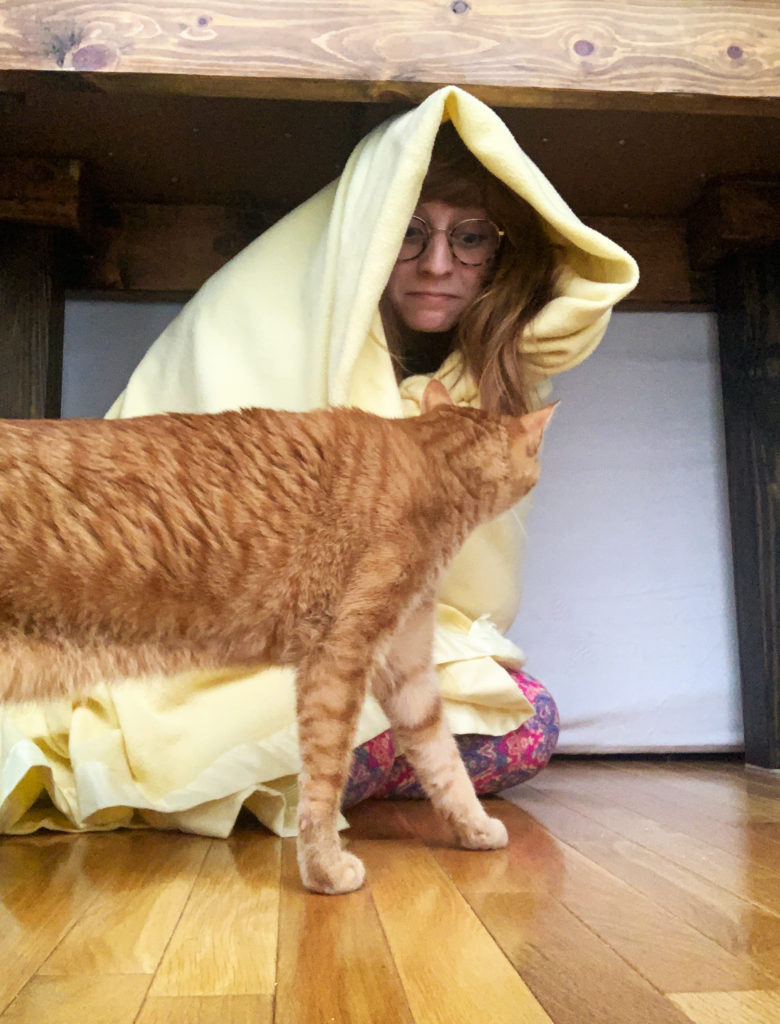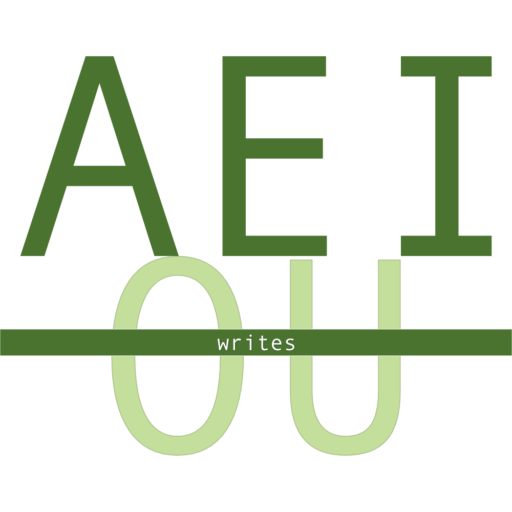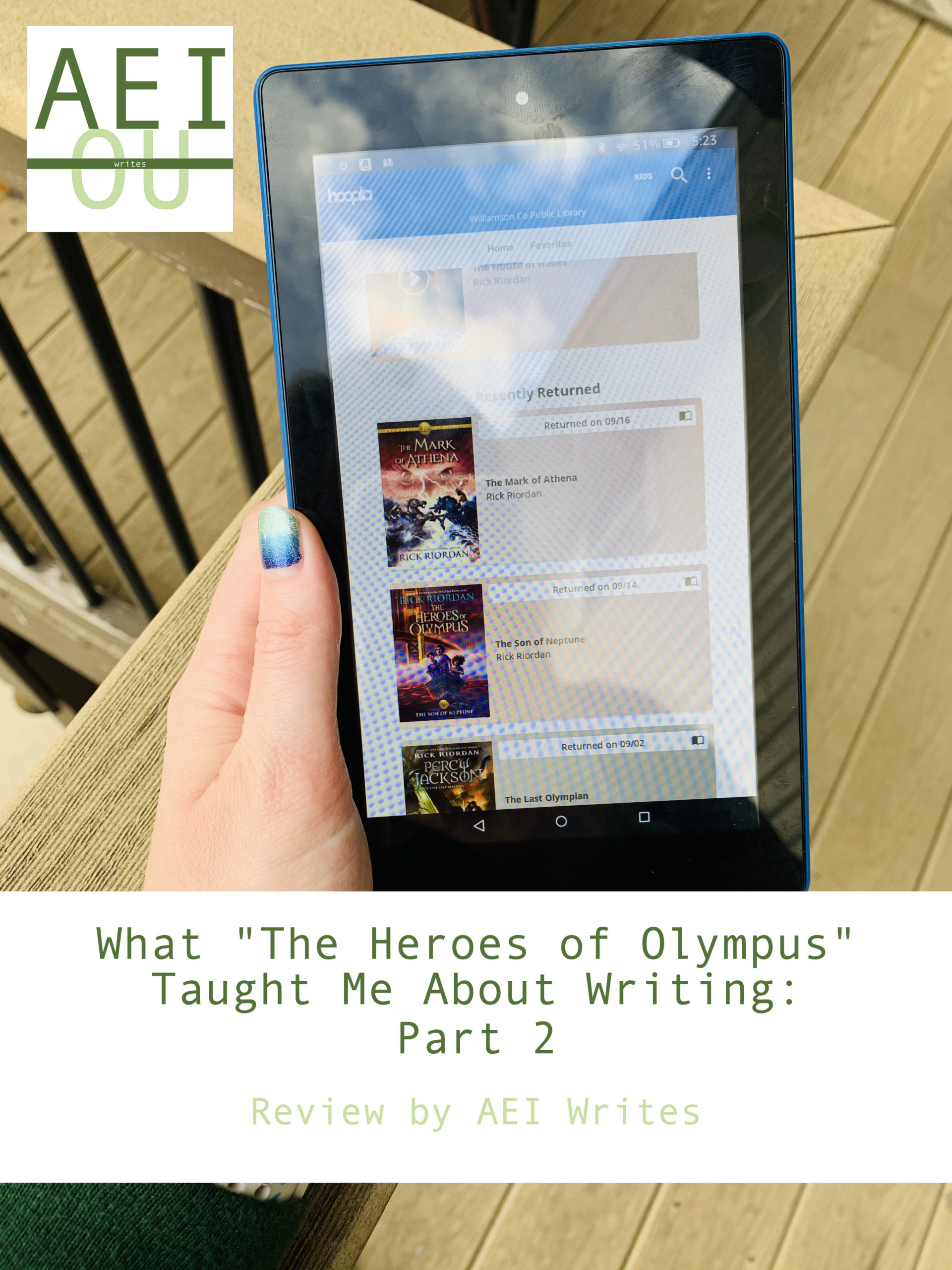As a reader, I want to strangle Rick Riordan. As a writer, I think he deserves a medal. So much for my plan to get more sleep by trucking through the last two books. There’s a whole third series! Regardless of my book hangover, Rick Riordan continued to teach me a great deal about writing in The Heroes of Olympus. Here are 3 things I learned from the last two books.
3 Things I Learned from The Heroes of Olympus
1. Sometimes, authors are cruel in their dedications.
To my wonderful readers:
Sorry about that last cliff hanger.
Well, no, not really. HAHAHAHA.
But seriously. I love you guys.
Riordan, R. (2019). The house of Hades. Los Angeles: Disney-Hyperion.
I mean, Riordan certainly ended The Mark of Athena with a bang. If I’d had to wait over a year for the next book to come out, I might pitch a fit, too.

To my wonderful readers.
Sorry about that apology for that last cliffhanger.
I’ll try to avoid cliffhangers in this book.
Well, except for maybe a few small ones…
because I love you guys.
Riordan, R. (2014). The Blood of Olympus. Los Angeles: Disney-Hyperion.
Lies, Rick Riordan. A bunch of lies!
(Ok, so maybe I’ll pitch a fit regardless.)
Despite the snarky dedications, Riordan was right to riddle his book with cliff hangers. Those cliffhangers proved essential to the pacing and tension of the story. It’s what kept a knot in my stomach so I believed that I had to keep reading or it would be bad for my health. (I’m not sure which is worse – waiting aimlessly in suspense, or the massive book hangover from a week long reading binge.)
2. The good guys and bad guys are only separated by the choices they make.
Good bad guys? Bad good guys? It sounds confusing. In truth, that juxtaposition in books reflects the reality of our broken world. Every human hosts a war of good and evil inside of them. Only the choices we make separate the “heroes” from the “villains.” That line can vary by situation, too. Only Jesus was perfect! The rest of us little heathens need a whole lot of divine intervention. We may knock it out of the park with our generosity one minute and BAM! The next minute we’re screaming at the person in front of us driving too slow.
Part of what makes The Heroes of Olympus so good is that it grapples with this tension. Each main character, literally labeled a “hero” in the book, has to face their fatal flaw. Without fatal flaws, the characters would lose their depth. Who cares about a kid who perfectly saves the day with water power every time? But a kid who’ll needlessly drown someone out of concern for their friend – that’s a kid worth reading about.
3. Start with a crazy first sentence.

For each new scene and change of narrator, Riordan started the chapter with a single sentence. That sentence summarized where the narrator wound up in the middle of the scene. Riordan then started back at the beginning of the action with the next paragraph to catch us up.
With so many narrative perspectives to juggle, this one-sentence-strategy really worked to clearly identify where the reader had been dropped in the story. Plus, that one sentence would hold some aspect of the character’s voice, so we knew who was speaking even without the giant blazing chapter header. The crazy sentence sparked immediate interest and clarified point of view in about 5 seconds. That, my friends, is a magic technique!
Concluding The Heroes of Olympus
Well, now that I finished this series, I get to read The Trials of Apollo! I’d smack my head, but I’m also kind of glad to stick around with the characters. This time, I’m taking a little break between series. How do you cope with book hangovers? Let me know in the comments below!

